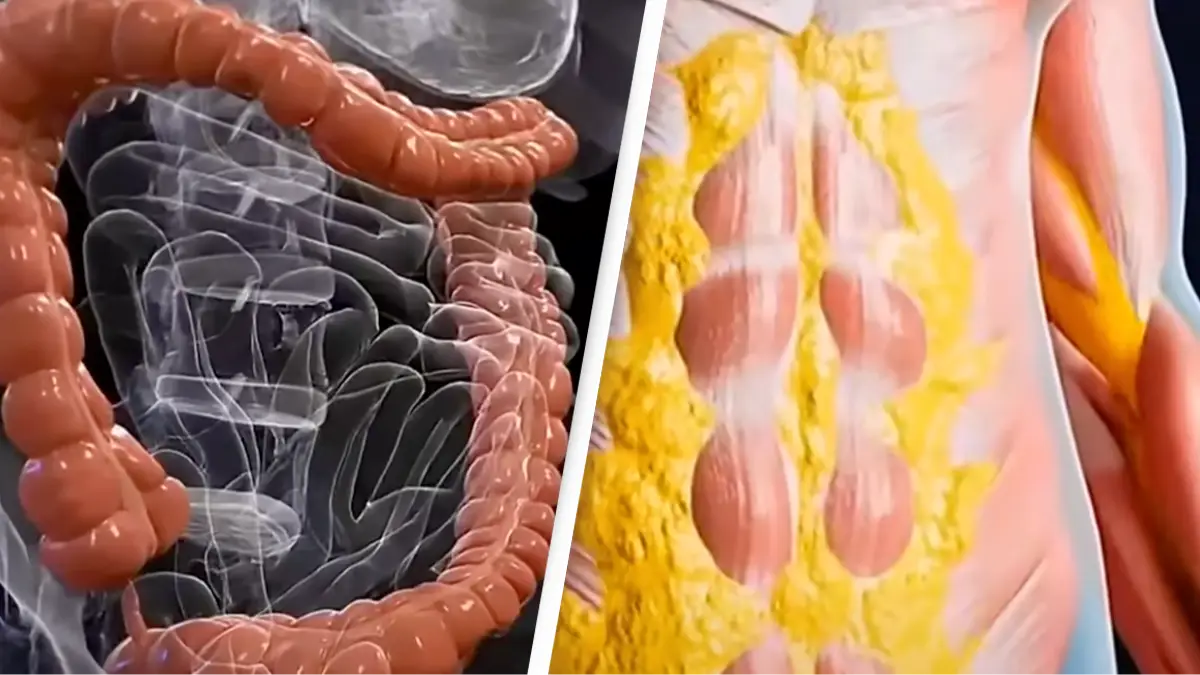
A simulation has shown how your body gets to work when you go 36 hours without eating, and the results are surprising.
When it comes to eating healthy and having a balanced lifestyle, people have a whole lot of opinions. And one of those common opinions is of the benefits of intermittent fasting, which is an eating plan that switches between fasting and eating on a regular schedule, per Johns Hopkins Medicine.
But what actually happens to your body during that period?
Well, a YouTube video has shown how the body tends to respond to no longer getting any sustenance.
Advert
The 55 second video, posted on the platform by the Wellness Wise channel on May 6, has many users praising the effectiveness of fasting and the benefits they have seen from doing it.

According to the video, after four hours your body stops digesting food, insulin drops and it starts burning stored sugar for energy.
After eight hours a person’s blood sugar levels begin to drop and the body begins using stored glycogen for energy.
It is at about 12 hours that fat burning begins to take place and the body starts to shift into ketosis. This pretty much just means the body is burning fat for energy instead of glucose.
This can result in weight loss, so now you understand the basic appeal of the method for losing weight.
At around 16 hours the body starts breaking down damaged cells and toxins for recycling, this phase is known as autophagy.
At 24 hours the body is fully in ‘fat burning mode’, according to the video and at this point the body can reduce inflamation and increase insulin sensitivity.
At 30 hours growth hormones inside the body begin to spike and this is believed to help preserve muscle and promote fat loss.
And finally at 36 hours the body is at maximum autophagy where your body regenerates tissues and boosts your metabolism.
Amazingly, this ‘body reset’ can be extended to 72 hours, however it will prove more difficult.
Johns Hopkins medicine has outlined some of the benefits of intermittent fasting while there remains some debate as to whether fasting is good for the body.
They noted that some of the benefits research has concluded can be gained included:
- Improved thinking and memory
- improved heart health,
- improved physical performance,
- helped prevent obesity
- improved tissue health

Despite these potential benefits, there are also common negative side effects that can occur when it comes to fasting.
While severity may vary, the side effects can include:
- Excessive hunger pangs
- Fatigue and low energy
- Headaches (ranging from mild to severe)
- Dizziness
- Digestive issues (e.g., constipation and bloating)
- Irritability and other mood changes
- Bad breath
- Sleep disturbances
- Dehydration
- Polyuria (excessive urination)
- Potential impacts on reproductive health
- Nutrient deficiencies and malnutrition
So before you give long intermittent fasting a go, probably best to speak to your healthcare professional for advice.
Topics: Health, News, Food and Drink